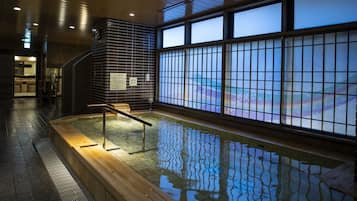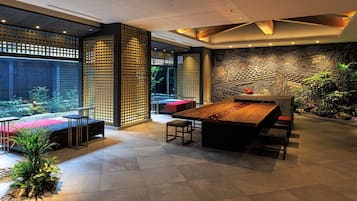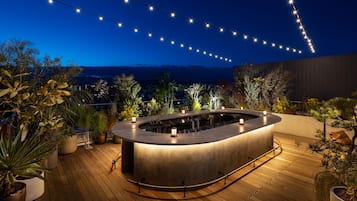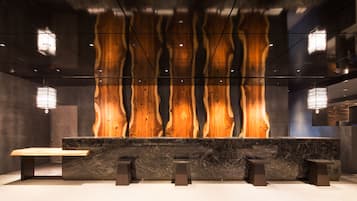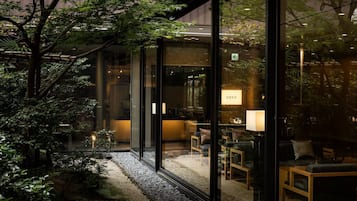Kyoto has many hidden temples that most visitors never see, but they are still magnificent. If you have already been to the biggest and most famous sites and are looking to explore a bit further, then this list is for you.
One of the most beautiful thing about visiting secret temples in Kyoto is that you will enjoy the mystic aura and austere surroundings almost to yourself. You certainly won’t have to contend with rows of souvenir shops or crowds of tourists.
- 1
Yoshida Shrine
A protector of Kyoto

- History
- Unusual
Built in 859 and recognized as one of Japan’s 22 elite shrines in 1081, Yoshida Shrine was founded by the powerful Fujiwara family. Here, during the 15th century, scholar and priest Kanetomo Yoshida launched the arm of the Shinto religion known as Yoshida Shinto.
The shrine remains an important Shinto site today. Annually, on 3rd January, the shrine hosts the setsubun (Chinese New Year) bonfire and celebrations. Encircled by lush forest the shrine sits peacefully within an air of tranquility.
Location: 30 Yoshidakaguraokacho, Sakyo Ward, Kyoto, 606-8311, Japan
Open: Daily from 9 am to 5 pm
Phone: +81 (0)75-771-3788
Map - 2
Myoshinji Temple
Former villa for an emperor

- Budget
- Families
- Photo
Myoshinji Temple from the 14th century is home to Japan’s oldest bell, cast in 698, and it is still used daily by the monks. The site was once the villa of Emperor Hanazono, but once he became enlightened after many years of strict Zen Buddhist practice the villa was converted into a temple.
The Lecture Hall has an amazing painted ceiling of a dragon glaring in 8 directions that stares at you wherever you stand. The easiest way to reach the temple is by Kyoto City Bus 61, 62, or 63 to Myoshinji-mae stop.
Location: 1 Hanazonomyoshinjicho, Ukyo Ward, Kyoto, 616-8035, Japan
Open: Daily from 9 am to 4 pm
Phone: +81 (0)75-461-5226
Map - 3
Myomanji Temple
Historic temple relocated here

- History
- Unusual
Enjoy superb views of Mount Hiei from Myomanji Temple, originally constructed in the 14th century and moved to this location after World War II. In honor of the Buddha’s enlightenment, Myomanji Temple has a scale replica of the Bodh Gaya stupa in India within serene gardens of conscientiously raked sand and gravel.
Location: 91 Iwakura Hataedacho, Sakyo Ward, Kyoto, 606-0015, Japan
Open: Daily from 9 am to 4 pm
Phone: +81 (0)75 791 7171
Map - 4
Adashino Nenbutsuji
Temple of thousands of statues

- Budget
- Photo
Adashino Nenbutsuji, a small temple hidden on a hillside in Arashiyama is home to 8,000 carved stone Buddha memorial statues. They are all sitting together forming a dramatic sight for those with the energy to walk the half hour or so up the hill. You can also take a local bus up the hill from near Tenryuji Temple.
Adashino Nembutsu Temple is thought to be devoted to the impoverished peoples whose ashes were scattered in the area during the Heian and Edo periods.
Location: 17 Adashino-cho, Toriimoto, Ukyo Ward, Kyoto, 616-8436, Japan
Open: March–November from 9 am to 4.30 pm. December–February from 9 am to 4 pm
Phone: +81 (0)75-861-2221
Map - 5
Honen-in Temple
Temple with serene gardens and a pond

- Budget
- Families
- Photo
A short detour from the Philosopher’s Walk pathway will bring you to Honen-In; a small yet stunningly scenic temple of the Jodo-sect. With a rustic thatched gate and raked-stone gardens that the monks regularly redesign, it's a lovely place to visit and take respite along the historic promenade.
Through the rear of the temple, a classic Japanese bridge leads to a peaceful koi carp pond, which then gives way to a remarkable statue of Kannon the Bodhisattva of mercy.
Location: 30 Shishigatani, Goshonodan-cho, Sakyo Ward, Kyoto, Japan
Open: Daily from 6 am to 4 pm
Phone: +81 (0)75-771-2420
Map - 6
Choraku-ji Temple
Amazing view of the city

- Couples
- Families
- Photo
The steep uphill climb to Choraku-ji Temple is not for the faint-hearted, but the panoramic Kyoto views from the top is a fitting reward. The path leading to the temple is lined with stone lanterns that, when lit during the summer months, create an amazing sight. The gardens are especially beautiful when cherry trees are blossoming.
The temple dates back to the 9th century. This quaint temple is in the east of Kyoto, close to Gion district.
Location: 626 Maruyamacho, Higashiyama Ward, Kyoto, Kyoto Prefecture 605-0071, Japan
Open: Friday–Wednesday from 10 am to 4 pm (closed on Thursdays)
Phone: +81 (0)75-561-0589
Map - 7
Nonomiya Shrine
Black torii gates in a bamboo forest

- Photo
- Unusual
A lush bamboo forest surrounds Nonomiya Shrine, where, during the Heian Period, imperial princesses lived for at least a year as an act of purification before they went on to represent the imperial family. The shrine is devoted to the god of relationships and learning, so many single Japanese women come seeking a good match while students pray to pass their exams.
As you go through the distinctive black torii gates you will see the Kame no Ishi stone. It's believed that if you stroke the stone your wish will come true within a year. The shrine is within walking distance of Saga-Arashiyama station on the JR Sagano line.
Location: 1 Sagatenryuji Tateishicho, Ukyo Ward, Kyoto, 616-8375, Japan
Map - 8
Hokai-ji Temple
Temple for the Yakushi deity

- Families
- History
- Photo
The priest who built Hokai-ji Temple back in 1051 was a descendant of the Fujiwara family and was devoted to the deity Yakushi, which is still widely believed to help nursing mothers produce plentiful milk for their babies.
The shrine shelters the Yakushi and an Amida image in its nationally treasured altar. It used to have more halls, but they burned down during the Ōnin War. To reach this temple, take the Keihan Line to Rokujizo Station.
Location: 19 Hino Nishidaido-cho , Fushimi Ward, Kyoto
Open: Daily from 9 am to 5 pm
Phone: +81 (0)75-571-0024
Mapphoto by 663highland (CC BY-SA 3.0) modified
- 9
Waratenjin Shrine
Peaceful garden surroundings
- Families
- History
If you happen to be pregnant or know someone who is, then a trip to Waratenjin Shrine may just insure a healthy bundle of joy! This old Shinto shrine is dedicated to protecting babies and mothers during childbirth. It is also believed that by procuring a special charm from the shrine you will be able to predict the sex of your baby.
This ancient shrine is close to Ritsumeikan University in the north of Kyoto and is popular with students praying before exams.
Location: 10 Kinugasa Tenjinmoricho, Kita Ward, Kyoto, 603-8375, Japan
Open: Daily from 8.30 am to 5 pm
Phone: +81 (0)75-461-7676
Map - 10
Zuishin-in Temple
Artifacts and plum blossom trees

- Budget
- Photo
Zuishin-in Temple is a beautiful place famous for its thick canopy of plum blossom trees that explode with color in spring. The temple houses many priceless artifacts including items belonging to famous female poet, Ono Komachi. A dance is staged here annually to honor Komachi.
Few tourists have even heard of Zuishin-in so it is a good place to escape the crowds. Zuishin-in Temple is east of downtown Kyoto, in Yamashina district. Take the subway to Ono subway station.
Location: 35 Onogoryocho, Yamashina Ward, Kyoto, 607-8257, Japan
Open: Daily from 9 am to 5 pm
Phone: +81 (0)75-571-0025
Map - 11
Koryuji Temple
Kyoto's oldest temple

- History
- Photo
Many believe Koryuji to be the oldest temple in Kyoto dating back to 603, but devastating fires in 818 and 1150 saw the temple rebuilt each time. The Reiho-den hall protects many ancient documents, paintings and writings, all of which are cherished as National Treasures.
Of particular interest to most visitors is the wooden sculptures in the temple grounds. Koryuji is well off the tourist trail in Uzumasa, but is interesting if you find yourself in the western suburbs.
Location: 32 Uzumasa-hachioka-cho, Ukyo Ward, Kyoto, 616-8162, Japan
Open: Daily from 9 am to 5 pm
Phone: +81 (0)75-861-1461
Map - 12
Kajuji Temple
Temple with an ancient garden

- Families
- Photo
Kajuji Temple was built by Emperor Daigo to venerate his mother in the after-life. Another victim of Kyoto’s earthquake-prone position and the Onin Wars, by the late 17th century the temple had fallen into disrepair, until the shogunate channeled funds to restore its former glory.
Today, the temple is distinguished by its ancient strolling garden which has been kept in much the same state as it was 1,000 years ago. To reach Kajuji Temple, takr the Tozai subway Line to Ono station.
Location: 27-6 Kanshuji Niodocho, Yamashina Ward, Kyoto, 607-8226, Japan
Open: Daily from 9 am to 4 pm
Phone: +81 (0)75-571-0048
Mapphoto by Yanajin33 (CC BY-SA 3.0) modified
- 13
Oishi Shrine
Samurai lord and Shishi statues

- Food
- History
A large statue of the Samurai lord Yoshio Oishi watches over Oishi Shrine, a quiet temple in Yamashina. The main hall stands behind a tall concrete torii gate and is the quintessential Japanese temple scene with cascades of cherry blossoms lining the path towards the hall.
Shishi statues appear around the temple, open mouthed to ward off bad spirits and with closed mouths to keep the good luck. The annual Sakura Festival (cherry blossom season) is held here in the first week of April.
Location: 16 Nishinoyama Sakuranobabacho, Yamashina Ward, Kyoto 607-8308, Japan
Open: Daily from 9 am to 4 pm
Phone: +81 (0)75-581-5645
Map - 14
Saihoji (The Moss Temple)
A UNESCO World Heritage Site

- Adventure
- Unusual
Thought to be one of the oldest gardens associated with Zen philosophy, Saihoji was converted to Zen in 1339 and it wasn’t until it fell into disrepair in the Meiji Period that its famous moss started to grow. Now said to contain over 120 types of moss, the temple is called Kokedera, literally The Moss Temple.
A UNESCO World Heritage Site since 1994, the gardens have been designated a special place of scenic beauty especially the area around the pond which is shaped like the Chinese character for ‘heart’. To view the temple and its amazing moss garden you must apply in writing with your name, number of people, preferred date and mailing address to the address below.
Location: 56 Matsuojingatanicho, Nishikyo Ward, Kyoto, 615-8286, Japan
Phone: +81 (0)75-391-3631
Map - 15
Ota-jinja Shrine
Iris flowers blooming twice a year

- Families
- History
- Photo
Ota-jinja, also known as the Purple Iris Shrine, is notable for the bright flowers that over the grounds. In May and June, this peaceful site explodes with color when the iris flowers are in bloom. The shrine is devoted to the god of plentiful harvests and fittingly has been an important shrine for farmers since its beginning.
There is also a pond with an island in its center that is known as "the floating isle."
Location: 340 Kamigamo Motoyama, Kita Ward, Kyoto, 603-8047, Japan
Open: Daily from 9.30 am to 4.30 pm
Phone: +81 (0)75-781-0011
Map





